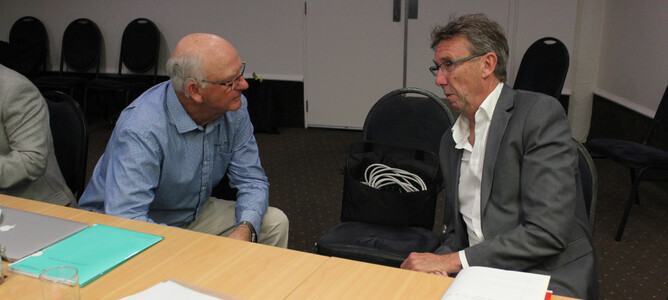The latest Coronavirus announcement by the Government, creating a 14day compulsory isolation for visitors, will have a significant impact ontourism and the greater New Zealand economy. This, plus the impact thevirus is already having on some sections of the economy such as hospitality, along with the international ramifications brought from COVID-19 gives you a dangerous recipe for recession.
The media have been talking about a recession for the last 3 years, however the economy in general has stayed relatively buoyant. It has slowed slightly but in many parts of NZ, SME’s have had good reason to remain positive. That positivity is almost a fuel that creates a snowball effect that has helped keep the business community productive and successful over the last few years. Unfortunately, the opposite can also be true. With talk that a recession now is imminent, trying to remain positive is very hard in the current ‘corona’ environment, but it is something SME’s must do
In the past, recessions have seen many businesses close their doors, while others not only survived but actually flourished.
If you are a small business owner, what can you do to put the odds in your favour that your business will survive this emergency? We all hope the effects are short term, but it is vital that all business owners react now.
Key Strategies
Positivity and attitude as a business owner will play a big part. That is because it is more likely to lead to action. You will quickly do what needs to be done. In these types of situations too many business owners focus on the problem rather than the solution. First and foremost, you need to be solution focused. You need a way to put the odds more in your favour.
There will be some obvious things like trimming costs, perhaps temporarily delaying certain projects. Keeping in contact with clients, strategic partners and support people is also important.
There is no one strategy but a combination of strategies that will enable your business to keep safe. Below is a list of strategies and ideas that Business Success Partners has gathered from a number of sources, including its own that are worth your consideration.
- Be a hunter
When times are good, business often just walks through the door or at least is easier to get. Sales and marketing strategies and systems are often nowhere near as good as they should be. Branding is sometimes non-existent. Many business owners have forgotten how to go out and create new business. Recessions don’t mean that business has stopped it means that it has slowed down, got smaller temporarily and hopefully not for too long. The longer you wait to act in these circumstances, the harder it will be.
You need to develop a sales strategy that will put you in front of more potential clients. You need to use the correct marketing tools and possibly bring in some expertise to help you do this initially if there is a gap in your ability in these areas. Understanding how to directly market to B2B and what strategies and tools are needed to market to B2C are things that many SME’s will have not had to do aggressively for a long time.
The key is to understand that business is still there, and you have to be the business owner that is prepared to go out and find it. The analogy we often use at business Success Partners is don’t wait to be feed like a sea anemone – become a shark! - Examine your supply chains
Attempt to stabilize supply chains by using alternative sources and working with suppliers to solve bottlenecks. Where rapid solutions are not possible, co-develop plans, put in place interim solutions, and communicate plans to all relevant stakeholders. Your business may have components that are made elsewhere in the world. You may not even know this. If your business relies on a supplier from an affected region, you might need to immediately seek an alternative. Important to note that export disruptions may change so keeping informed is important to reacting quickly. - Develop a contingency plan
You must examine how your whole business is being affected and look at ways to as quickly as possible make changes. Seek assistance to do this if needed.
This may involve changing your marketing strategy to better influence customers behaviours, scaling back on certain products or possibly making more efforts to sell others that are more available.
Temporary diversification for some businesses maybe part of a solution.For example, if you’re in the tourism and hospitality industry that targets offshore, consider promoting your products and services within New Zealand. - Understand cash flow
You need to know in advance what impact a slowdown will have on cash flow.Understand if your ability to pay debt could be affected, and make adjustments accordingly. - Ensure you're aware of finances at all times
Important to be monitoring all aspects of financial performance, creditors, debtors and stock levels.
Put in place rapid-reporting cycles so that you can understand how your business is being affected. - Communication with Customers and other stakeholders
Customers need to be informed of any issues with delivery also communicate with them regarding contingency plans you are putting in place.
With suppliers, you may need to look at renegotiating payment terms and be prepared that your debtors may be asking for the same. Perhaps offer a discount on early payments.
You may also want to discuss with your bank a temporary reduction in loan payments - Review Business Insurance
Check with your broker or insurance company if you can make a claim on your business policy for any financial losses suffered. - Employees
Employees will likely be exposed to conflicting information and feel anxious or confused about the best course of action. Be sure to communicate policies promptly, clearly, and in a balanced manner. Don’t be afraid to communicate clearly your company’s efforts to see through this crisis. This will be an opportunity to pull the team together. With travel restrictions, absenteeism maybe affected so staff training/cross training maybe important to ensure productivity is not affected. - Review Costs
Look at all the costs of your business and reduce discretionary and non-essential expenses.
Fixed costs such as wages, rent, utilities, financing costs and tax liabilities are not affected by a decline in sales and need to be properly managed. - Seek professional advice today
It’s very important for small businesses impacted by the coronavirus, to seek professional advice – don’t sit back and hope this will all go away. If you feel you need help developing a plan for your business, then do this immediately. If you are already working with an advisor, then ensure this becomes a priority of your discussions and planning.
In summary the key message is to act, be resilient, try to remain positive, develop a plan and do the things you need to do sooner rather than later.
Article by Phil Wicks
Business Success Partners
March 2020
Sources:
Harvard Business Review
MYOB






